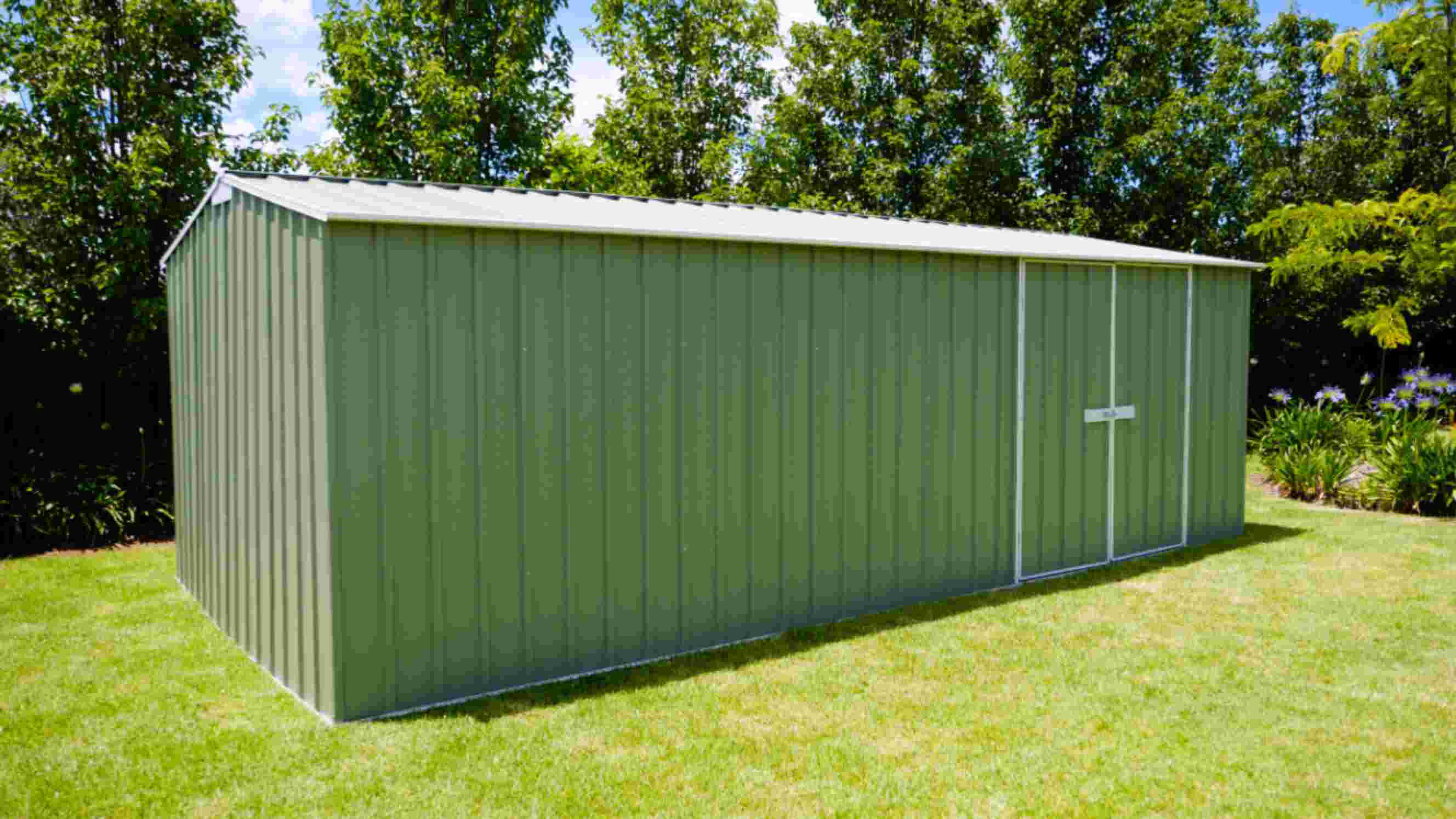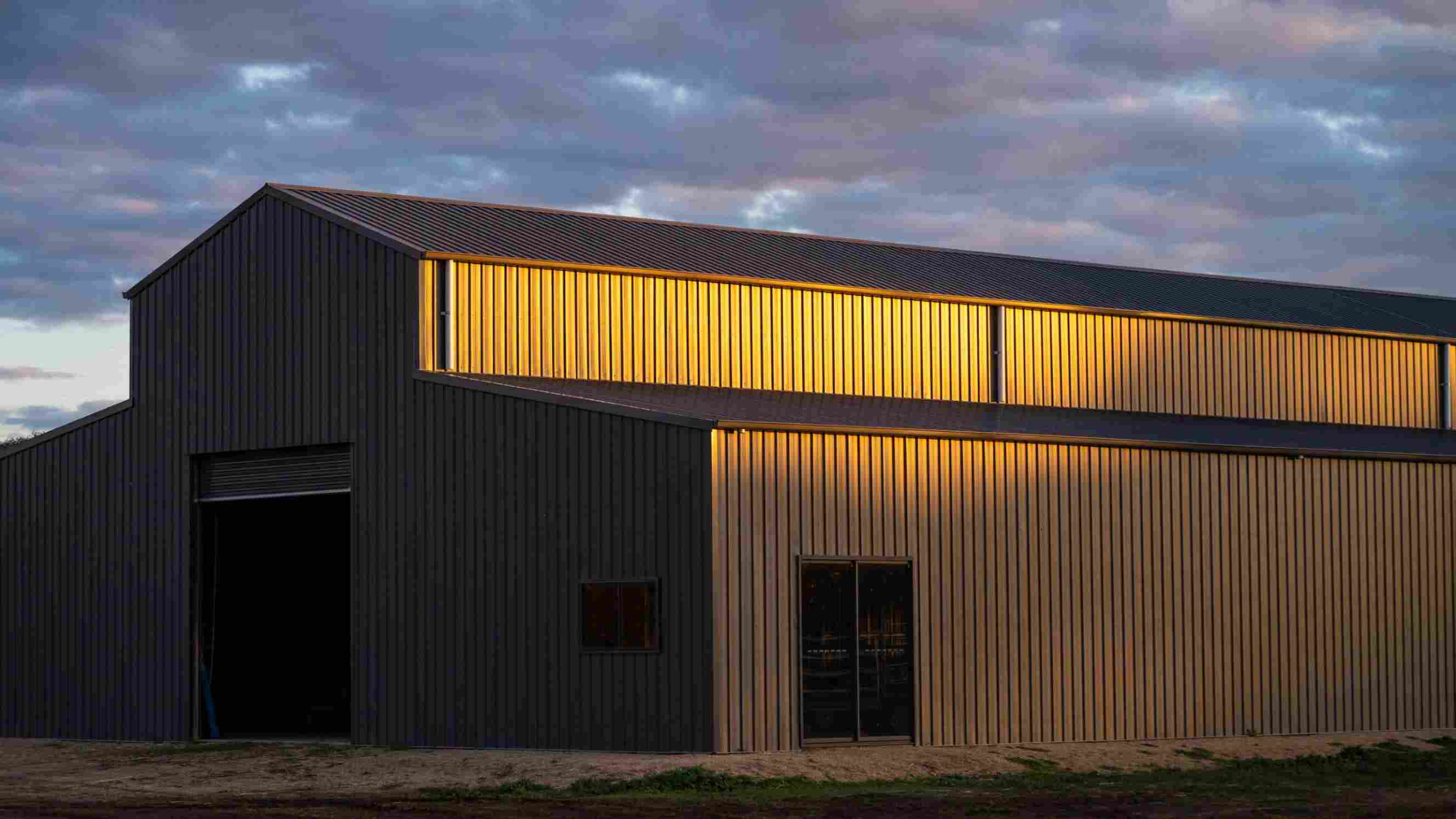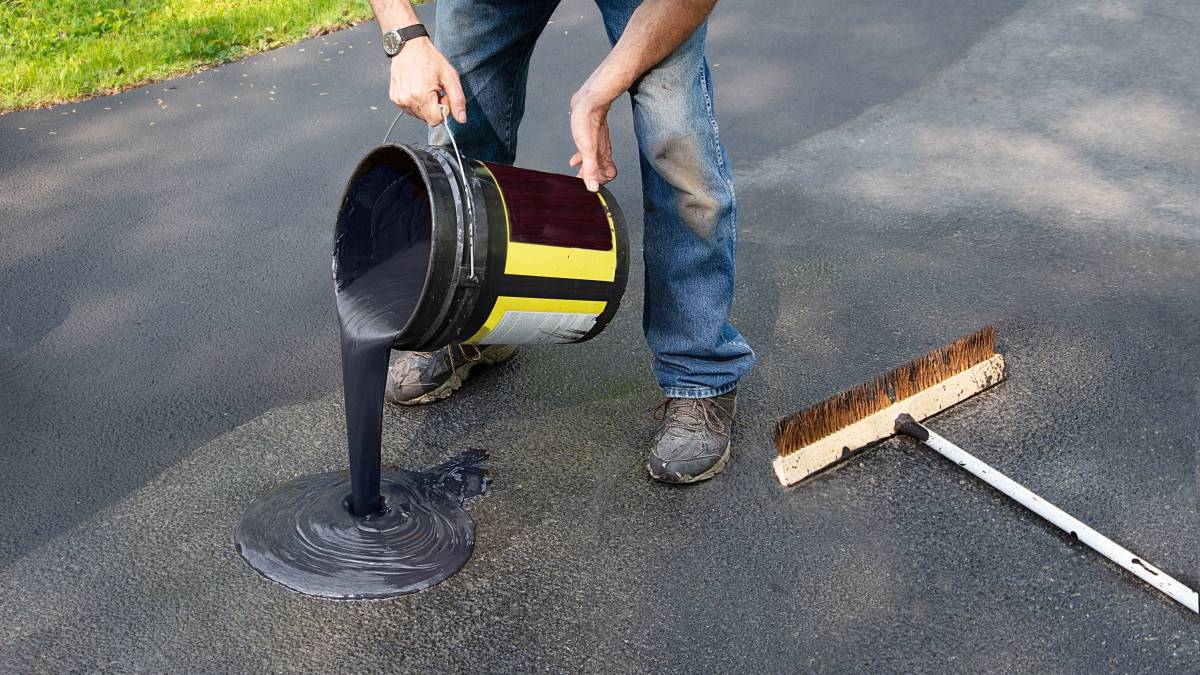- Home/
- Comparisons/
- Building & Construction/
- Bitumen vs Asphalt Driveway
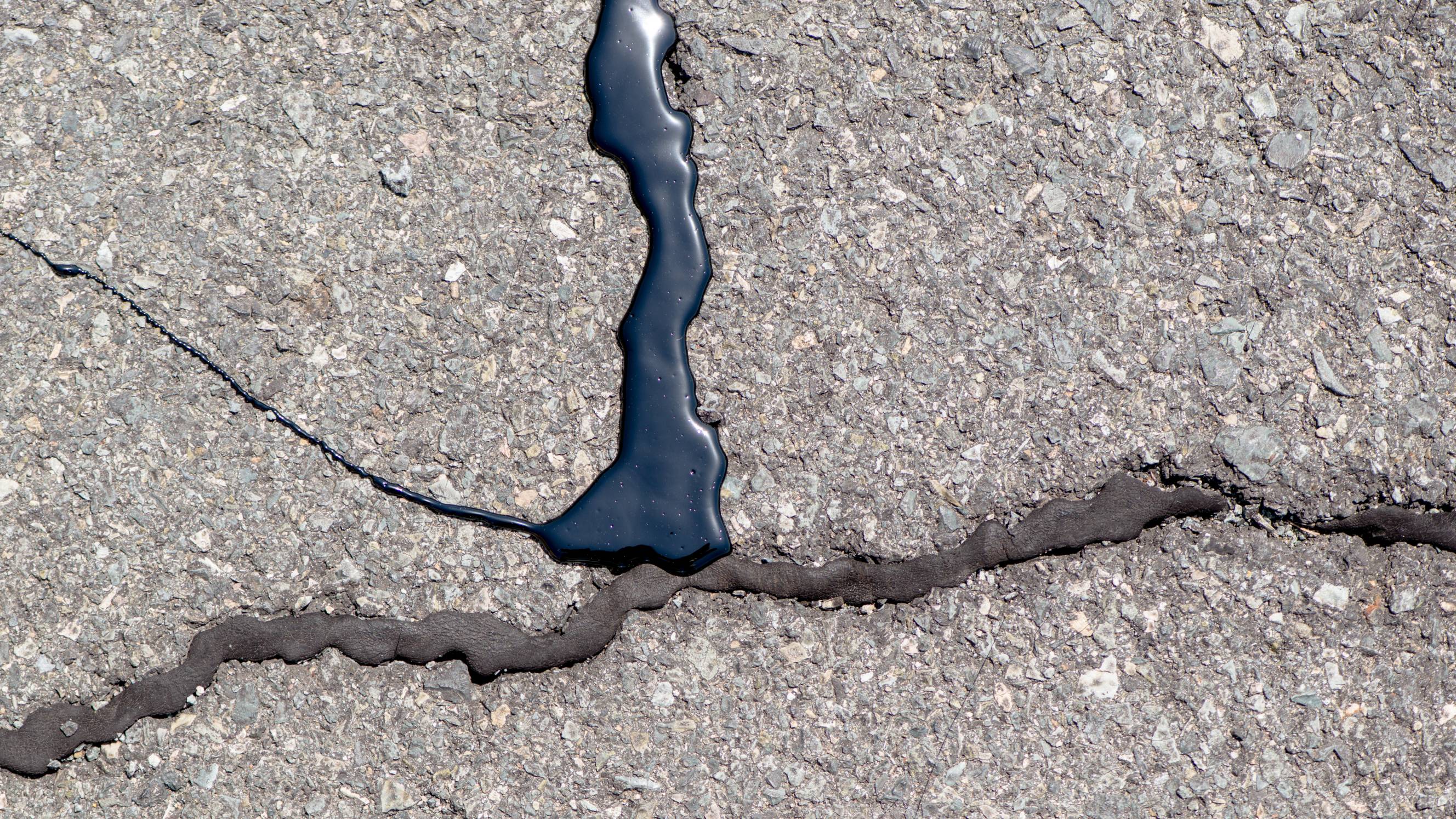
Bitumen vs asphalt: Which is better for your driveway?
Comparing bitumen and asphalt driveways based on cost, appearance, and more
Hire a builderLast Updated on

Written by Cielo B.
Staff Writer
Read more about our contributor
Key Facts
- Bitumen is a thick, black liquid derived from crude oil and is used to seal driveways and construct roads.
- Asphalt is a strong road surface material made of a composite mix of construction aggregates and a binding agent.
Have you recently noticed new cracks and potholes on your driveway? It would be best to fix them immediately to prevent further structural damage. But if your driveway is already beyond repair, consider building a new one by laying bitumen or asphalt.
In this article, learn the contrasting characteristics of bitumen vs asphalt to decide which you should use for your driveway.
What is bitumen?
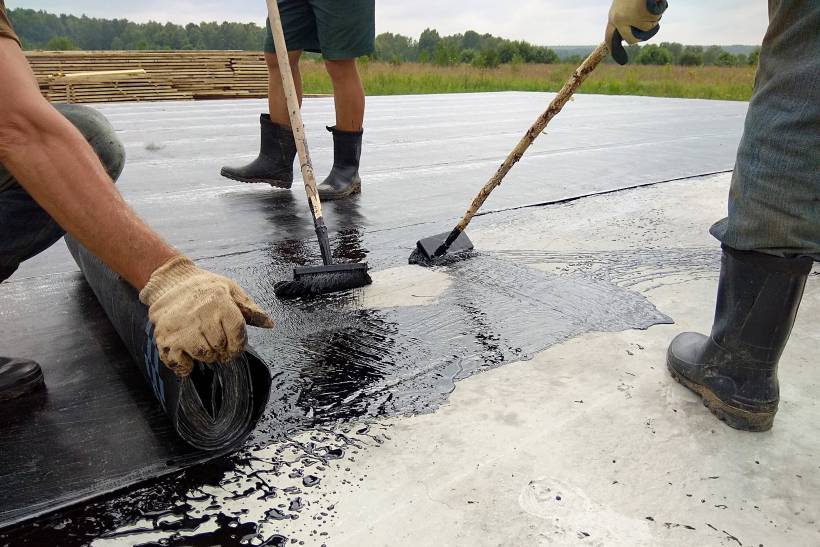
Bitumen is a naturally occurring material used as a liquid binder to seal driveways. It is a thick, viscous liquid with a black or dark brown colour found in crude oil deposits, natural gas fields, and ocean floors. Before bitumen can be used in road and pavement construction, manufacturers extract bitumen from crude oil and petroleum through distillation.
Due to its strong binding and waterproofing properties, bitumen provides pavement surfaces with extra strength and protection against water and structural damage.
However, bitumen applications are not limited to road construction because you may also use it as a roof waterproofing agent, a paint additive, and an asphalt sealant.
What is asphalt?
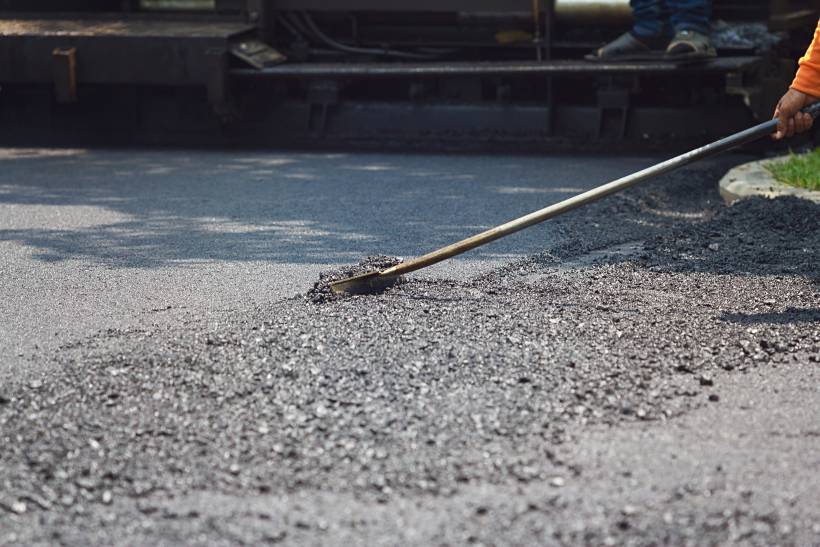
Asphalt is a road construction material produced in manufacturing plants with a composite mix of construction aggregates (such as sand, gravel, and stones), a binding agent, and reclaimed asphalt pavement (RAP). Many people would confuse asphalt with natural bitumen because asphalt is a bituminous material, which means it contains bitumen to bind the aggregates.
Asphalt is most often used for building roads, parking spaces, sidewalks, and driveways because of its durability and smooth appearance. Note that applying it may involve using a paving machine.
RAP is a mix of high-quality aggregates recycled from old roads and pavements.
What are the different types of bitumen and asphalt?
Bitumen has two types, namely:
1. Atactic polypropylene (APP) — has plastic-like properties and is resistant to high temperatures.
2. Styrene-butadiene-styrene (SBS) — has rubber-like properties that prevent it from cracking during cold winter months.
Whereas asphalt has three types, which are:
1. Hot mix asphalt (HMA) is the standard asphalt mix used in major road and pavement projects. It comes in three varieties:
Dense-graded mixes — the most commonly used type of HMA with an impermeable surface that doesn’t allow water to penetrate.
Stone-matrix mixes — have more stone aggregates with higher asphalt content to minimise tyre noise and prevent surface cracking.
Porous HMA — has an open-graded structure that allows water drainage and filters pollutants in water.
2. Warm mix asphalt (WMA) is similar to HMA but is heated at a lower temperature and uses less oil and petroleum, making it environmentally friendly.
3. Cold mix asphalt (CMA) is less durable because the aggregates are not heated, so it is often used in patching holes and cracks.
Asphalt vs bitumen driveways: What’s the difference?
Since both are popular for road and pavement construction, deciding whether an asphalt or bitumen driveway is better can take time and effort. You have to consider numerous factors before making an informed decision.
In terms of cost
Bitumen is more affordable upfront, with installation prices ranging from $10 to $20 per square metre. However, bitumen-sealed surfaces easily get damaged over time, especially if you regularly park and walk on them. This is why many use bitumen only for road resurfacing to fix potholes and cracks.
Meanwhile, asphalt offers a more durable solution for driveways. Generally, asphalt roads are thicker and require less maintenance. So, even though asphalt pavement installation is expensive ($25 to $55 per square metre), it is more cost-effective in the long run.
In terms of appearance
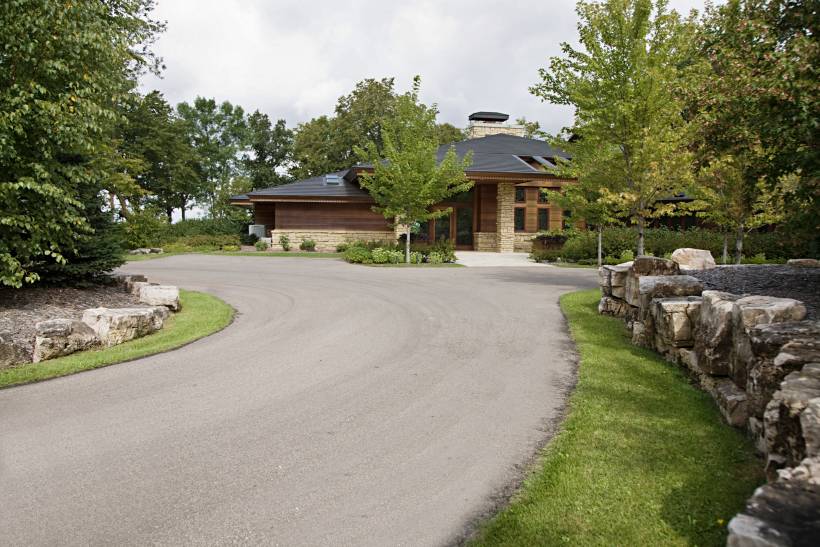
If you want something organic, go for bitumen. It has a stony top layer with visible textured grain and pebbles, helping add natural elements to your driveway. Another advantage of bitumen is that some manufacturers can add pigments on a bitumen-sealed surface to match your home’s exterior fully.
For a much cleaner and classic look, choose asphalt surfaces. They initially appear black and slowly turn grey over time. Asphalt is also ideal for curvy driveways because it is more flexible to shape. This allows you to add a grassy island or blooming garden at the centre of your driveway to make it look more attractive.
In terms of skid resistance
Skid resistance is a significant parameter that measures driveway safety because it determines the grip of your tyres on the pavement surface. In other words, if the pavement surface has good skid resistance, it prevents the car from sliding out of control.
Between the two, asphalt is more skid-resistant. Even though it appears smooth, the asphalt mixture contains fine, coarse particles that create a rough surface. This provides more friction between the tyres and the road. Moreover, some asphalt types, like porous asphalt, have water-draining properties that prevent your driveway from getting too wet and slippery during rainfall.
Another advantage of choosing asphalt is that the surface doesn’t wash away easily, unlike in bitumen-sprayed driveways. This is why many homeowners with sloped driveways choose asphalt.
Meanwhile, loose stones occur in bitumen-sealed surfaces, and they can wear out your tyres quickly. This also causes your car to sound noisy.
In terms of temperature sensitivity
Since Australia has a hot climate with occasional rainfall, your driveway surface should adapt well to high temperatures. Asphalt is a good option due to its flexibility and malleability. This means an asphalt surface expands instead of cracking or breaking at different temperatures.
Moreover, asphalt comes in many types, including the standard HMA. Commonly used in roads and driveways, this type of asphalt uses a bitumen binder, which is heated to high temperatures. This helps evaporate the extra moisture in the mixture, increasing its strength and weather resistance.
Conversely, bitumen-sprayed driveways are more sensitive to high temperatures because bitumen is soft. Consequently, it bends and changes shape when exposed to extreme heat.
In terms of durability
Although both surface materials require regular driveway cleaning and maintenance to ensure longevity, asphalt is undeniably more durable. It has a layer depth of 25 to 44 millimetres, thicker than bitumen-sealed driveways with a layer depth of 10 to 20 millimetres. Because of this, asphalt surfaces have a longer lifespan and can last more than 20 years!
However, although asphalt is more durable, keep in mind that it still requires sealant reapplication every three to five years. Also, cracks and potholes may inevitably appear over time, so call for driveway repair services immediately to prevent further material deterioration.
In terms of eco-friendliness
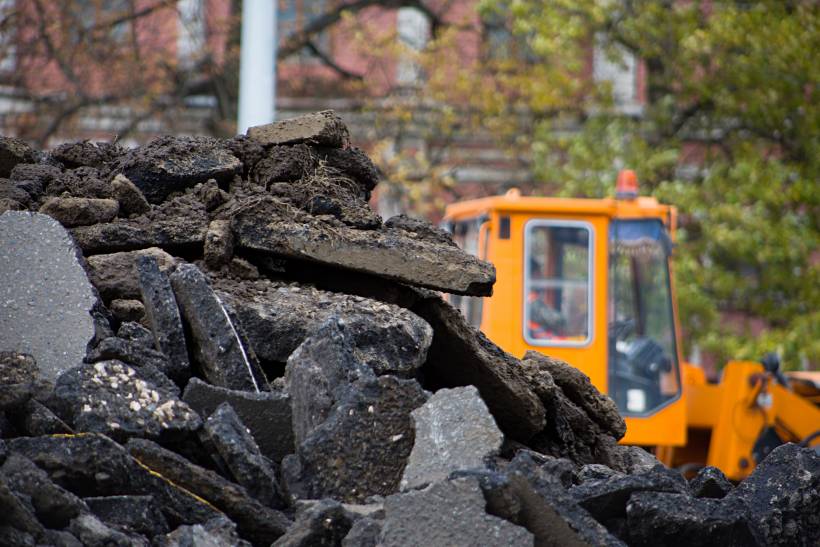
Asphalt is a sustainable choice because it is fully recyclable. In addition, some Australian companies have developed various types of eco-friendly asphalt, including Reconophalt and an asphalt mix with toner powder waste.
Reconophalt is the first-ever surface material in Australia, comprising a large amount of recycled content, including soft plastics, glass, toner, and RAP.
Moreover, HMA with dense-grade mixes is impermeable, unlike bitumen-sealed surfaces. This helps prevent leaching or the process of water-carrying chemicals and pollutants flowing through pavement layers. Simply put, the impermeable asphalt surface helps block toxic substances leaked in cars (such as oil and transmission fluid) from seeping through the pavement surface to avoid polluting soil and groundwater.
Achieve your dream driveway with Airtasker
Now that you understand asphalt and bitumen differences, the next step is to look for experts who can help you build a safe and attractive driveway! At Airtasker, you can find skilled and experienced builders who can provide detailed information about asphalt driveway costs and safety, so feel free to reach out to them.
Learn more about our contributors

Written by Cielo B.
Staff Writer
Cielo is an experienced content writer who has explored various industries throughout her career. Her expertise, founded on a degree in journalism, includes writing about automotive and vehicle maintenance. She’s an avid car enthusiast who loves driving through lush rural areas with her old (but reliable) manual car. Cielo also covers topics like dressmaking, tailoring, and photography since she is a passionate cosplayer who enjoys dressing up as her beloved anime characters.
Asphalt road vs bitumen road
| Bitumen Driveway | Asphalt Driveway | |
|
Cost |
More affordable upfront |
More cost-effective in the long term |
|
Appearance |
Stony top layer with a grainy and pebbly finish |
Dark, smooth surface |
|
Skid Resistance |
Its loose stones over time reduce skid resistance |
Its fine, coarse particles make it more skid-resistant |
|
Temperature Sensitivity |
Prone to bending, thus more sensitive to heat |
Offers more resistance to heat |
|
Durability |
Thin layer, thus less durable |
Thick layer, thus more durable |
| Eco-friendliness |
Less sustainable since it allows leaching. |
Fully recyclable with an impermeable surface. |
FAQs on bitumen and asphalt
Standard hot-mix asphalt is produced in manufacturing plants in which bitumen and aggregates are heated up to 300 degrees Fahrenheit until they form a sticky substance. Next, sand and gravel are added with the sticky substance for better consistency and finally placed in large storage tanks.
Meanwhile, bitumen involves various production methods, but crude oil distillation is the most popular. This involves removing the lighter components of crude oil (petrochemicals and fuel) to extract the residual oil. Next, the residual residue is heated once again to remove the remaining lighter parts. What’s left is the bitumen we need for road construction.
Bitumen and asphalt emit dangerous fumes and volatile organic compounds, which, when inhaled, can cause various health hazards such as headache, dizziness, skin rashes, fatigue, etc. To mitigate this, Safe Work Australia made regulations about the maximum rate of exposure to bitumen and asphalt for road workers.
In road and pavement construction, using bitumen alone is not possible because bitumen is used only as a binding agent. You still need sand, stone, rocks, gravel, and other aggregates to build a foundation on a pavement surface. However, bitumen can be used just as is for other applications, such as roof waterproofing.
Asphalt typically needs 6 to 12 months to cure completely. However, this does not mean you cannot use your asphalt driveway for a year because curing differs from drying.
Curing means the time needed for asphalt to fully harden, while drying means the asphalt surface isn’t soft and sticky anymore, usually taking 2 to 3 days. After drying, you can now use your driveway.
Find building & construction contractors, fast
Post a task
Related articles
Related price guides
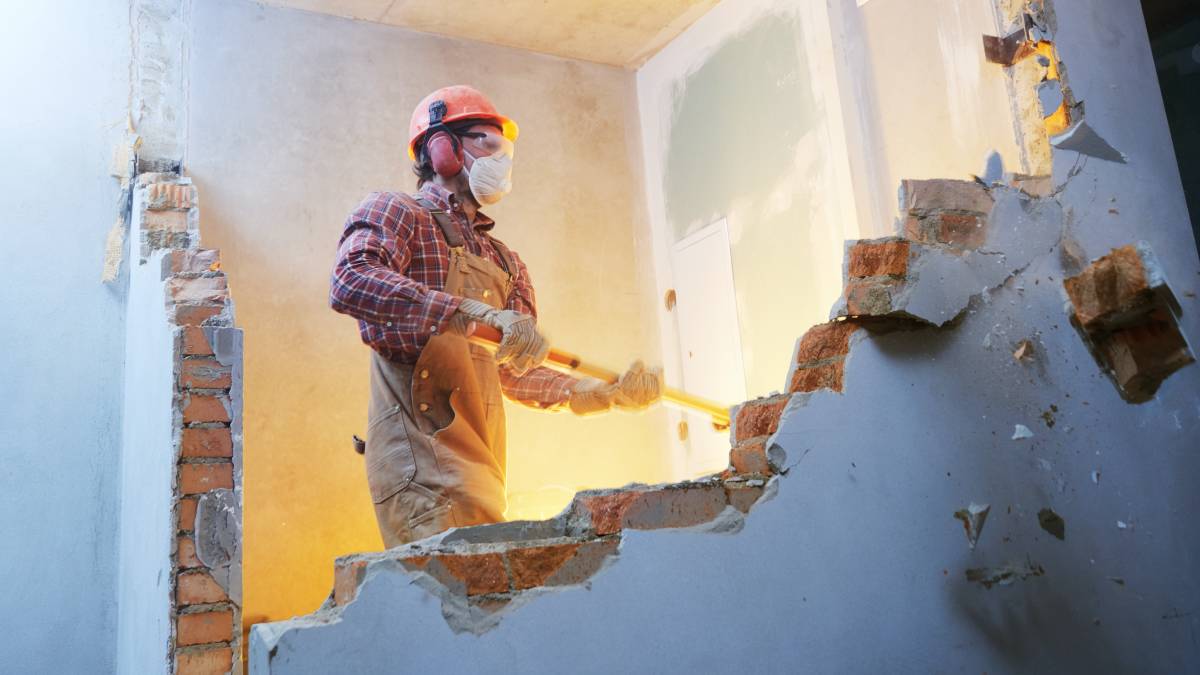
How much does demolition cost?
Read more

How much does an outdoor gazebo cost?
Read more

How much does a pergola cost?
Read more

How much does a new staircase cost?
Read more
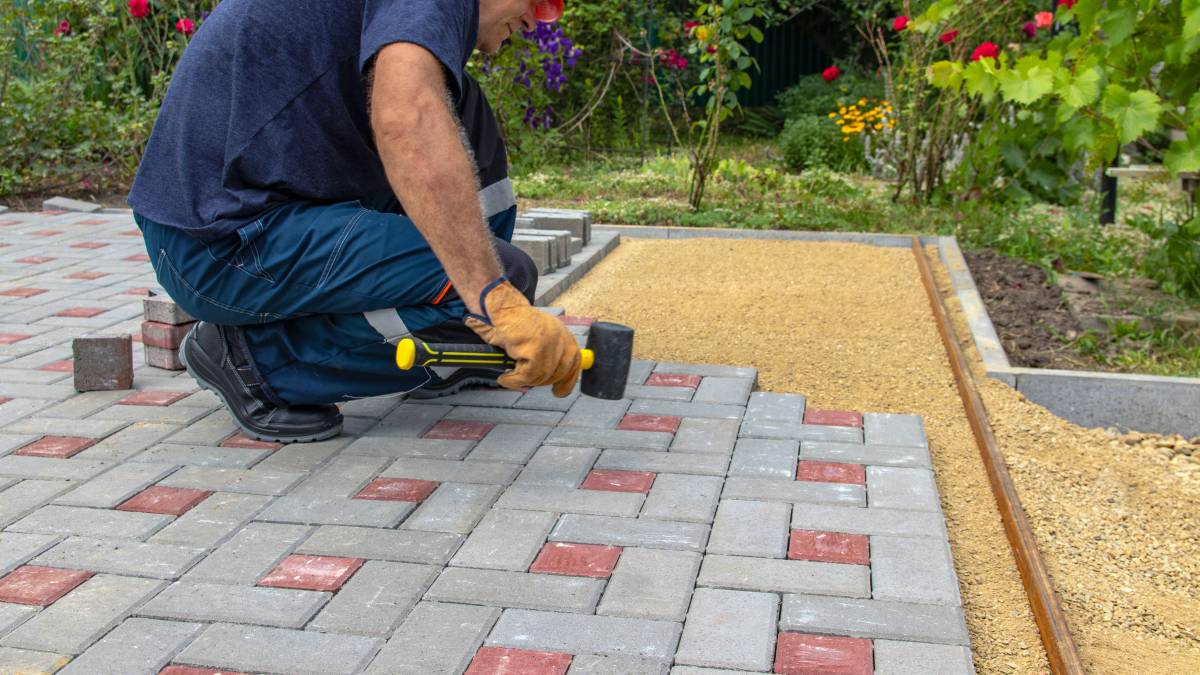
How much do patios cost?
Read more

How much does a plunge pool cost?
Read more




